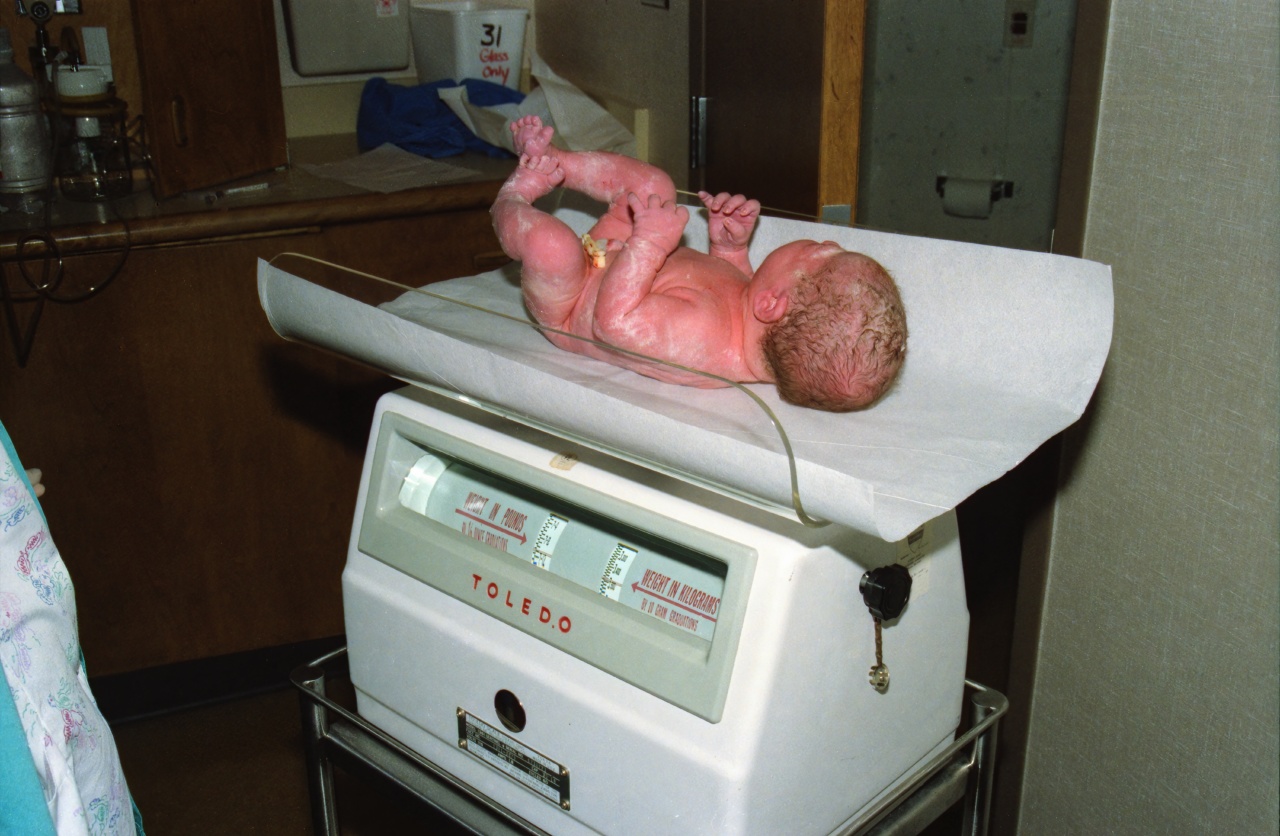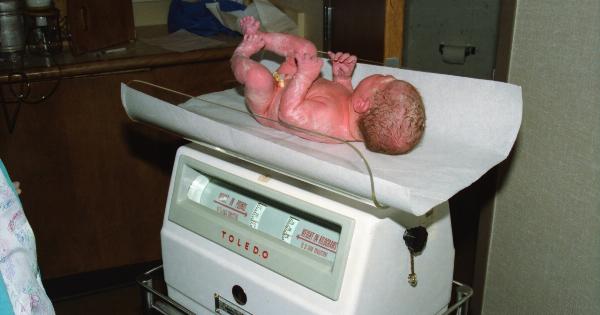Babies are tiny, delicate creatures that require utmost care and attention from the moment they are born. As a parent, one of the most important things you should monitor is your baby’s weight.
Your baby’s weight helps determine if they are growing well and getting enough nutrition. During your baby’s first year, you’ll often find yourself at the doctor’s office for regular check-ups where they’ll measure your baby’s weight and compare it to other babies his age.
In this article, we’ll help you understand your baby’s weight, how to track and take note of changes, and how to ensure your baby is gaining the correct amount of weight for their age.
What is a normal weight for a baby?
When it comes to your baby’s weight, there’s no one-size-fits-all standard. Babies come in all shapes and sizes, and their weight can vary depending on a variety of factors, including their birth weight, genetics, and feeding habits.
A full-term baby typically weighs between 5 lbs 8 oz to 8 lbs 13 oz, with an average weight of around 7.5 lbs.
It’s essential to note that newborns typically lose some weight in the first few days after birth, but they should regain it by the time they leave the hospital.
Why is weight gain important?
Weight gain is an important sign that your baby is getting enough nutrition and calories to support healthy growth, development, and overall health.
A baby’s weight gain is crucial in their first year of life since they require adequate nutrition for their organs and immune system to develop correctly.
Studies have shown that low-weight babies (i.e., babies below the 10th percentile) are more vulnerable to a host of potential medical issues, including serious infections, breathing difficulties, and motor development delays.
Conversely, overweight babies are also at risk of developing health problems, such as diabetes and high blood pressure, later in life.
How often should you weigh your baby?
During your baby’s first year of life, you should expect regular check-ups with your pediatrician to ensure they’re growing and developing at a healthy rate. At each visit, your doctor will weigh your baby and track their growth.
In general, doctors suggest that your baby’s weight should be measured:.
- at birth
- at 1 week old
- at 1 month old
- at 2 months old
- at 4 months old
- at 6 months old
- at 9 months old
- And at 1 year old
Between doctor’s visits, you can track your baby’s weight at home using a baby scale or, in some cases, using your regular scale with you and your baby’s weight together, then subtracting your weight from the total weight to get the baby’s weight. However, you should always double-check your measurements with your pediatrician to ensure you’re interpreting them correctly.
What is the normal rate of weight gain for babies?
A baby’s weight typically doubles by the time they are 5-6 months old and triples by their first birthday.
In general, it’s recommended that your baby gain around 5-7 ounces per week during their first month, 4-5 ounces per week at 2-3 months of age, and 1-2 pounds per month from 4-7 months.
After 7 months, their weight gain typically slows down, and they’ll gain around 3-5 ounces per week from 7-12 months. Keep in mind that these are just guidelines, and each baby develops differently.
If you have any concerns about your baby’s growth, be sure to speak to your pediatrician who can advise what is best for your child.
What affects a baby’s weight gain?
Several factors can impact a baby’s weight gain, including:.
- Baby’s birth weight: A baby’s birth weight plays a significant role in their overall growth and weight gain. A bigger baby at birth will typically gain weight more quickly than a smaller baby.
- Breastfeeding vs. bottle-feeding: Research has shown that breastfed babies tend to gain weight more slowly than formula-fed babies in their first year of life.
- Feeding frequency: In general, the more often you feed your baby, the faster they’ll gain weight.
- Introducing solid foods: Starting solids can cause a temporary slow down in weight gain, but the baby should soon gain it back plus some more in the following months.
- Illness: Illness can cause weight fluctuation in babies just like in adults. If your baby has been ill and has lost weight, it’s essential to work closely with the pediatrician to regain the weight back.
When should you be concerned about your baby’s weight gain?
While every baby is unique, it’s essential to keep an eye on your baby’s weight gain and development and speak with your pediatrician if you notice any of the following:.
- Your baby isn’t gaining weight at the recommended rate for their age.
- Your baby continues to lose weight or has stopped gaining after 2 weeks of age.
- Your baby is consistently gaining too much weight and is at risk of becoming overweight.
- Your baby is significantly smaller or larger than other babies their age.
- Your baby doesn’t seem very alert or is not very active.
It’s important to communicate any concerns you have with your pediatrician. In most cases, there’s nothing to worry about, but in some cases, your pediatrician may recommend a closer evaluation or change in feeding habits.
Tips for ensuring your baby gains weight adequately.
If your baby is struggling to gain weight, there are several things you can try to encourage healthy weight gain. A few tips include:.
- Feeding your baby on-demand: Babies need to eat regularly, and letting them set their feeding schedule will help them get the calories they need.
- Feeding your baby nutrient-rich foods: make sure you are feeding your baby nutrient-rich foods when you can so that they gain weight while getting all of the nutrition they need.
- Limiting distractions during feedings. Focus on feeding the baby in a quiet location with no distractions to get them to consume more milk or food, this way they get enough nourishment and do not lose interest quickly.
- Alternating formula or breastfeeding: Although breast milk is the recommended food for babies, every baby differs, and in some cases babies need formula for weight gain.
- Tracking your baby’s weight: keep track of your baby’s weight, be observant of the baby’s feeding patterns, and speak to your pediatrician for weight gain recommendations when necessary.
Conclusion
Your baby’s weight plays a vital role in their growth and development, so it’s essential to monitor it closely. Remember, every baby is unique, and there’s no one right weight for every baby.
Be sure to work closely with your pediatrician to ensure your baby’s weight is within a healthy range and that they’re growing as they should.






























